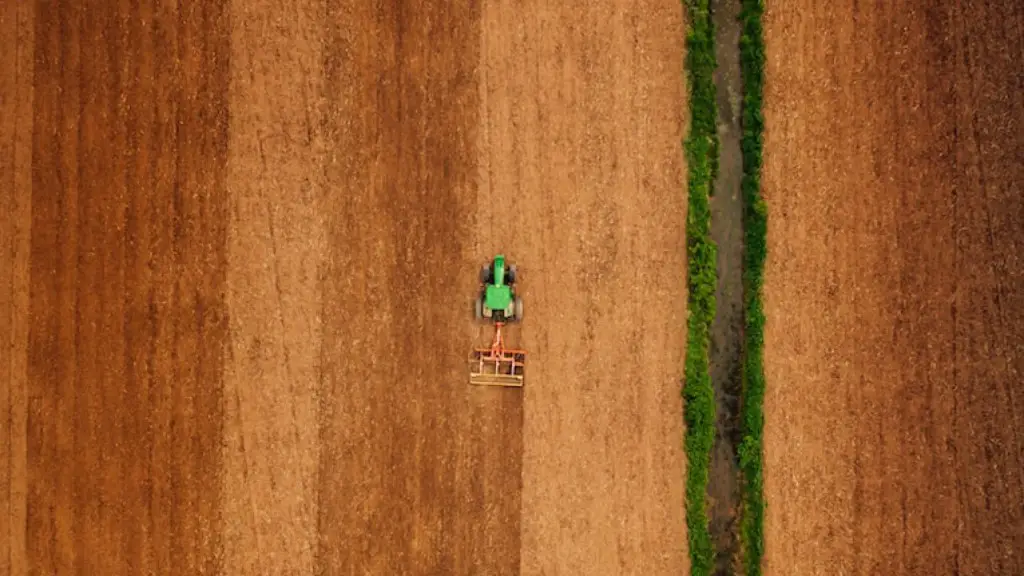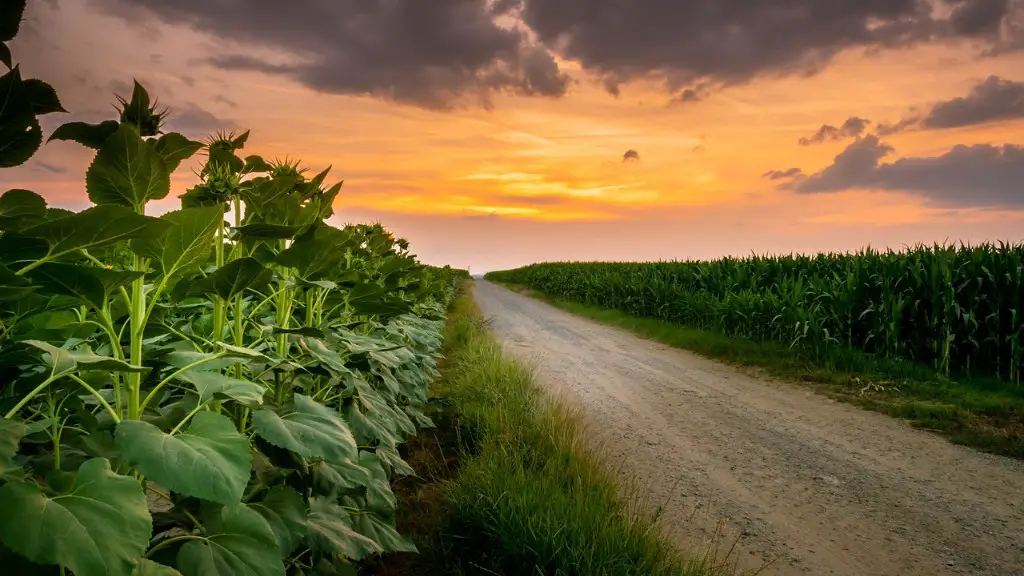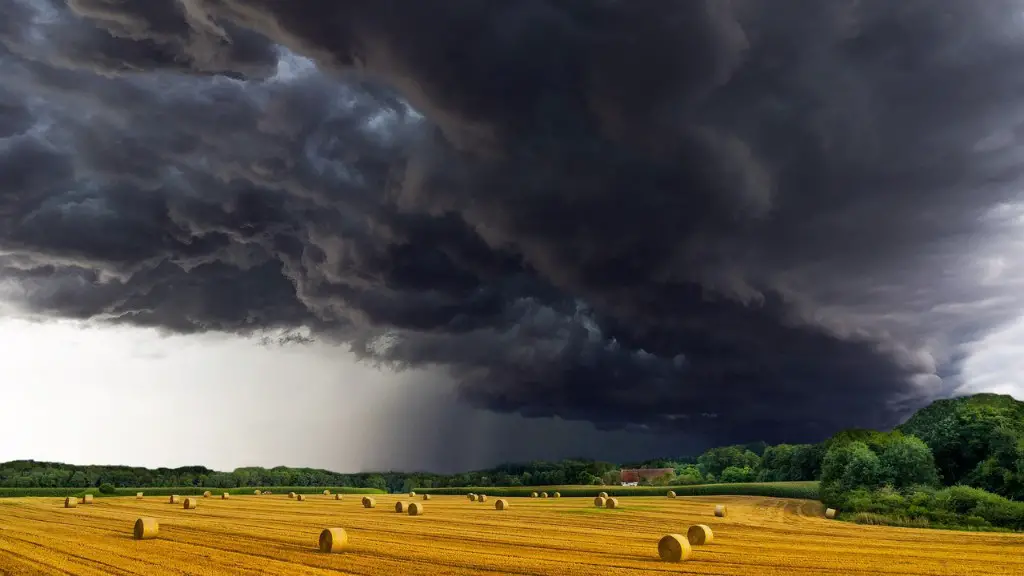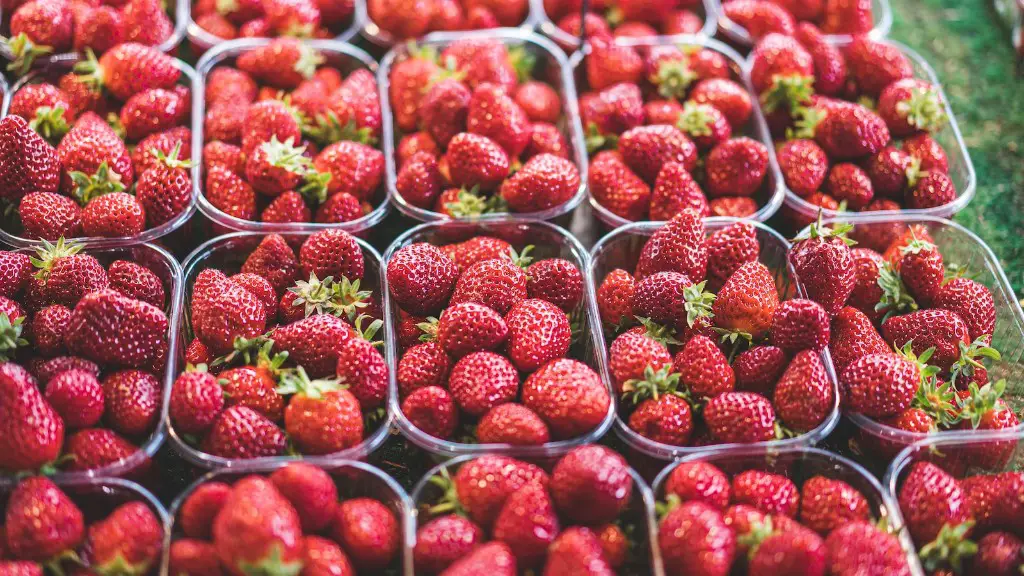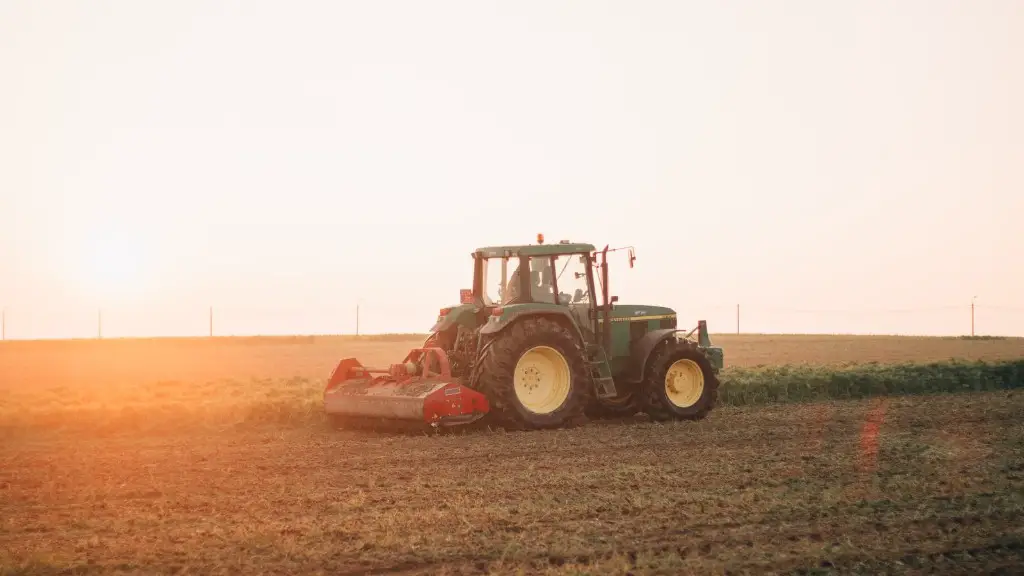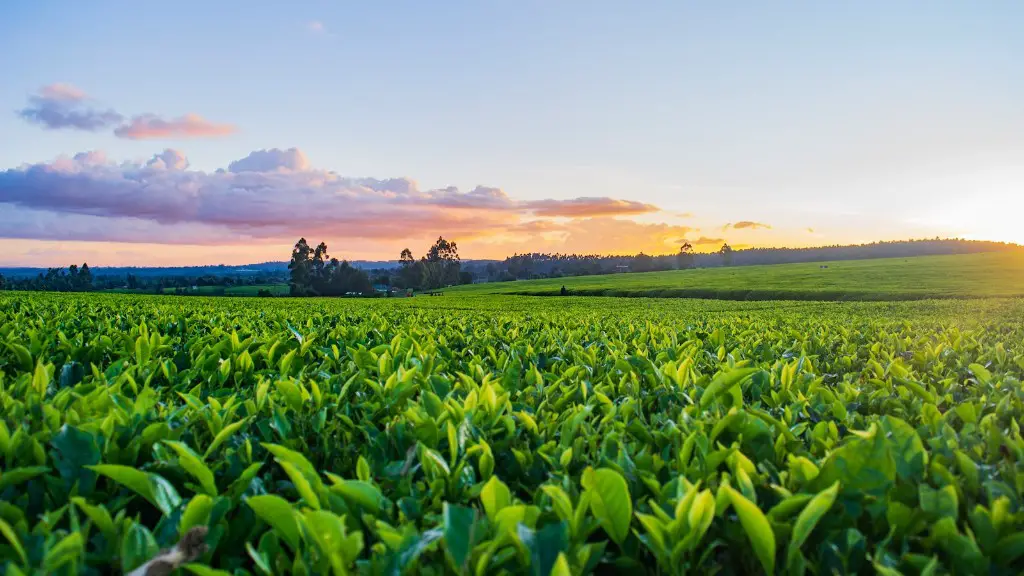Non-Agricultural Countries: Specifying the Facts
Despite the importance of agriculture in the global food supply, there are some countries in which agriculture is not present. This can be attributed to a variety of factors, such as a lack of adequate land, water, or climate. These nations include small island nations, as well as some areas of mainland large countries.
One example of a nation without agriculture is Singapore. Singapore is a small island nation in Southeast Asia that has utilized its space efficiently by incorporating extensive urban development. Due to its island geography, the land is limited and not conducive for agricultural; most of the food that is consumed comes from imports, both locally and from other countries.
The United Arab Emirates is another example of a country with no agriculture. Although the UAE is a large country, most of its landmass is not suitable for farming, as it is made up of desert areas, making it more beneficial to implement measures to adapt to the climate.
The tiny European principality of Liechtenstein is virtually bereft of agriculture by design. Since a majority of Liechtenstein is mountainous, the government has made a conscious decision to preserve the mountain environment, as opposed to transforming it for farming. Although it imports most of its food, Liechtenstein is able to produce enough animal-based foods such as milk, eggs and pork to sustain itself.
China is a large nation with numerous climate conditions; however, there are particular areas lacking in agriculture, such as the region located around Tibet. Many of the settlements in this region are located at too high of an elevation, making it difficult to grow any kind of crops.
Finally, the Netherlands is an example of a country that has no agriculture, although farming is still a significant industry they are mainly concentrated in the lower-lying areas, while higher areas are mainly used for other purposes such as urban development. This is due to the fact that much of the Netherlands is situated below sea level, which makes the land unsuitable for farming.
Why is Agriculture so Important?
Agriculture plays a major role in the global food supply system. It sustains human life by providing food and resources, and is a major component to the economy of many nations and regions. The availability of agricultural food sources is particularly important in parts of the world that have high poverty or are in crisis or conflict-ridden situations.
Agriculture enables economies to thrive and create jobs for local communities and assists in reducing poverty. Moreover, it encourages local individuals to engage in farming activities, which can provide an avenue for self-sufficiency and independence. Besides providing direct access to food, agriculture contributes indirectly to the food supply by providing the raw materials needed to create processed foods and by offering additional sources of income through the sale of produce and other related products, such as dairy and livestock.
Agriculture can play a major role in reducing climatic impact through the use of sustainable practices. Sustainable agriculture enables the use of resources such as water and land more efficiently, while also reducing the emanation of greenhouse gas emissions, thus helping to preserve the environment for future generations. In addition to this, agriculture also helps in preserving and protecting important ecosystems which further help in stabilizing the climate and environment.
Agriculture also helps in helping developing countries in providing food security and reducing hunger and poverty. Farming activities help in building a safety net for those in need and for families living in rural or remote areas. Moreover, this ensures food affordability for the most vulnerable people who face scarcity due to an inability to afford food.
Agriculture plays an important role in providing nutritional food that helps people in staying healthy. A balanced nutrient diet is essential to live a healthy life, and it helps in providing the essential vitamins, minerals and macronutrients needed to maintain good health.
Other Alternatives in Non-Agricultural Countries
Although many small nations with limited land resources may not support traditional agricultural activity, they often have other industries that are beneficial to the overall economy and resource consumption. In the case of Singapore, while the nation lacks the land to support food production, it has a thriving economy based on services, tourism, and international trade.
The United Arab Emirates has used its natural resources to focus on large-scale industries such as oil production, rather than agricultural production. China has focused its land-based energies towards urban development, metropolises, and the manufacturing sector. Liechtenstein has made conscious decisions to focus its energy on services such as banking and has turned parts of its mountainous region into nature reserves and tourist destinations. Furthermore, The Netherlands’ primary economic output is derived from the service sector, namely finance, IT, and tourism.
Although there is some debate about the future of food production in non-agricultural countries, the current situation of nations such as Singapore and the UAE suggests that non-agricultural countries can nonetheless provide sustenance to its citizens. As long as they are able to take advantage of the resources they do have, such as tourism and international trade, they can continue to thrive and offer viable sources of income while still providing food to their populations and the local markets.
Limitations of Non-Agricultural Countries
Non-agricultural countries, while self-sufficient in some ways, lack the ability to produce food of their own and are forced to rely heavily on imports for a majority of their food needs. This increases the risk of food insecurity due to the ever-changing price of food imports and the potential for being affected by restrictions or conflict in the importing countries. Moreover, relying heavily on food imports also means that agricultural nations are unlikely to benefit from profits made from the food produced and consumed in the non-agricultural country.
Food self-sufficiency is essential for any nation, regardless of its agricultural status. Non-agricultural countries, while mostly affluent and able to afford imported goods, still face challenges in having reliable access to food resources. Developing nations without the resources or infrastructure for agricultural production will likely face even more severe possibilities of food insecurity.
The lack of agricultural production can also have a negative impact on the environment. Poor land management and misuse of resources, such as water and other vital materials, can lead to desertification and contribute to a decline in biodiversity and ecosystem services. The lack of important environmental management practices, such as sustainable agriculture, can damage fragile or sensitive ecosystems, and possibly contribute to famine, poverty, and other negative environmental phenomena.
Agricultural Support in Non-Agricultural Countries
In non-agricultural countries that are economically in a position to do so, support for local agricultural production is highly important. This can include subsidies, grants, and other measures to incentivize agriculture, making it more appealing to individuals, businesses, and communities. Such policies and measures can help to reduce the reliance on imported goods, while also providing additional sources of income and employment opportunities.
Non-agricultural countries can also take additional steps to be more self-sufficient in their agricultural decisions, such as investing in infrastructure and technology that enables them to source food from their local markets or from local agricultural workers. Moreover, supporting the development of cottage industries in non-agricultural countries can have a huge benefit to the local population by increasing the availability of homegrown food and resources, while also helping provide economic stability.
Additionally, non-agricultural countries can also support regional agricultural production in other countries by providing aid and assistance. Such assistance can include financial aid, assistance in technological development, investment into agricultural production, and sharing of resources, such as seeds and other materials. All of these matters are essential in helping countries become more self-sufficient in their agricultural production.
Future of Non-Agricultural Countries
As non-agricultural countries continue to become more urbanized and industrialized, the question of food security is an increasingly important one. To help ensure that the food supply of these non-agricultural countries is secure and reliable, these countries must invest in sustainable models of land management and food production, while simultaneously diversifying their sources of food production.
In addition, non-agricultural countries should also take steps to reduce their reliance on food imports from other nations by encouraging domestic agricultural production, particularly in remote and undeveloped areas. In addition, countries should look for ways to increase their involvement in regional efforts, such as community-supported agriculture, in order to provide a more secure and sustainable food supply for their citizens.
Finally, non-agricultural countries should also consider the importance of investing in urban farming and other forms of local food production. This can help to reduce reliance on foreign imports and increase local food production, thus helping to reduce poverty and food insecurity in these regions.
